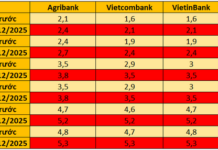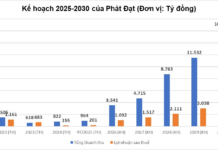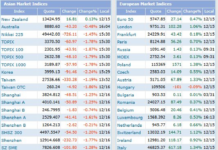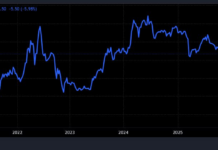The recent announcement of a 4.8% increase in electricity prices, effective from October 11, has left many residents of Ho Chi Minh City, like Mr. Tran Minh Dang, concerned about the impact on their monthly expenses. Mr. Dang, a resident of District 11, estimates that his family’s electricity bill could exceed 2.1 million VND per month.
Rising Cost Pressures
“My wife and I rent an apartment, and the landlord has installed old air conditioners and refrigerators that consume a lot of electricity, resulting in high electricity costs,” says Mr. Dang. He adds that his apartment also has a wet market and a residential area below, with many karaoke bars creating a noisy environment. As a result, he rarely opens the windows, relying on electric lighting and air conditioning day and night, making it challenging to save on electricity costs.
Mr. Vo Van Duy, a student at the University of Transport’s Campus 3 in District 12, shares a similar concern. He worries that his landlord will increase the electricity rate, leading to higher monthly expenses for his family. “I live with two friends, and our landlord charges us 3,500 VND per kWh, amounting to about 150,000 VND per month,” says Mr. Duy. He has noticed that some other boarding houses have increased their electricity rates to 4,000-5,000 VND per kWh and wonders if their landlord will follow suit.
Ms. Nguyen Ngoc Han, a resident of District 8, expresses her worry about the impact of the electricity price hike during the rainy season in Ho Chi Minh City. She notes that during the hot season after Tet, electricity bills will surge, adding to the financial burden on her family. Moreover, she anticipates that businesses will use the electricity price increase as a reason to hike their prices during the Tet holiday, a time when higher prices can’t be avoided due to increased demand.

EVN staff guide people on how to save electricity. Photo: Thanh Nhan
Business Owners Bite the Bullet
Ms. Hoang Ngoc Em, the owner of two pho restaurants in Binh Chanh District, estimates that the electricity price increase will cost her an additional 600,000-700,000 VND per month. Her monthly operating expenses, including electricity costs of around 11 million VND, amount to about 70 million VND. With the recent price increase, she expects to spend nearly 5% more on electricity. Meanwhile, the prices of herbs and spices have almost doubled, and customer numbers have dropped by 10-15% compared to the summer months, resulting in lower revenue and higher expenses.
“We have to use electric stoves, and even with fewer customers, we still need to cook for the same amount of time. On weekends, when we have more customers, we may need to use two stoves, which increases our electricity consumption,” says Ms. Ngoc Em. However, she adds that raising prices now would mean losing customers, so she has to endure the higher costs until the Tet holiday when price adjustments are more acceptable.
For larger businesses, the impact of the electricity price increase is even more significant. A director of a food processing company shared that the rise in electricity costs has directly affected their profits, especially in industries that rely heavily on electricity, such as cement, steel, and frozen seafood. “Increasing prices now would mean losing our market share, so we have to be very careful. For now, we have to accept lower profits and then look for other ways to reduce financial losses,” the director said.
Mr. Nguyen Van Khanh, Vice Chairman of the Ho Chi Minh City Leather and Footwear Association, expressed concern that the price increase would burden the entire production costs of businesses in an already challenging industry. He noted that orders had already been negotiated and were in the implementation phase, leaving no opportunity to adjust prices.
Some businesses worry that electricity prices may continue to rise in the coming months as EVN reports losses and implements periodic price adjustments every three months. As a result, in addition to energy-saving solutions, businesses have considered investing in rooftop solar systems to reduce long-term cost pressures and enhance their “green” credentials.
According to Dr. Nguyen Bich Lam, former General Director of the General Statistics Office, a 10% increase in electricity prices would result in a 0.33% increase in the consumer price index for the whole economy. Therefore, the price increase is not expected to significantly affect inflation this year. However, he noted that higher electricity prices would increase production costs for businesses, reduce profits, and lead to higher household consumption costs. “Businesses are forced to adapt and find ways to reduce costs and adjust their production structures instead of increasing product prices, which would hurt their competitiveness,” Dr. Lam said.
Investing in Energy-Efficient Technology
Mr. Nguyen Thanh Hien, Director of Tomcare Biotechnology Company (producer of the Chilica fermented chili sauce brand), shared that the electricity price increase might be a concern for other businesses, but it is not a significant issue for Chilica. He explained that in their previous factory, with a smaller capacity, their electricity bill used to be 18-20 million VND per month. However, after upgrading to a new factory with a much larger capacity, their electricity bill for the most recent month was less than 10 million VND thanks to their investment in energy-efficient compression machines.
“When we upgraded our factory, we were conscious of investing in energy-saving technology to reduce our input energy consumption and emissions,” Mr. Hien shared. He added that while the machines were more expensive, with a new hydraulic machine costing 100 million VND compared to 5-6 million VND for an older model of the same capacity, the long-term benefits outweighed the initial cost.
Orion Vina Food Company has also transformed its nearly 30-year-old factory into a smart factory by applying technologies such as IoT, AI, and Big Data to reduce costs and improve operational efficiency.








































